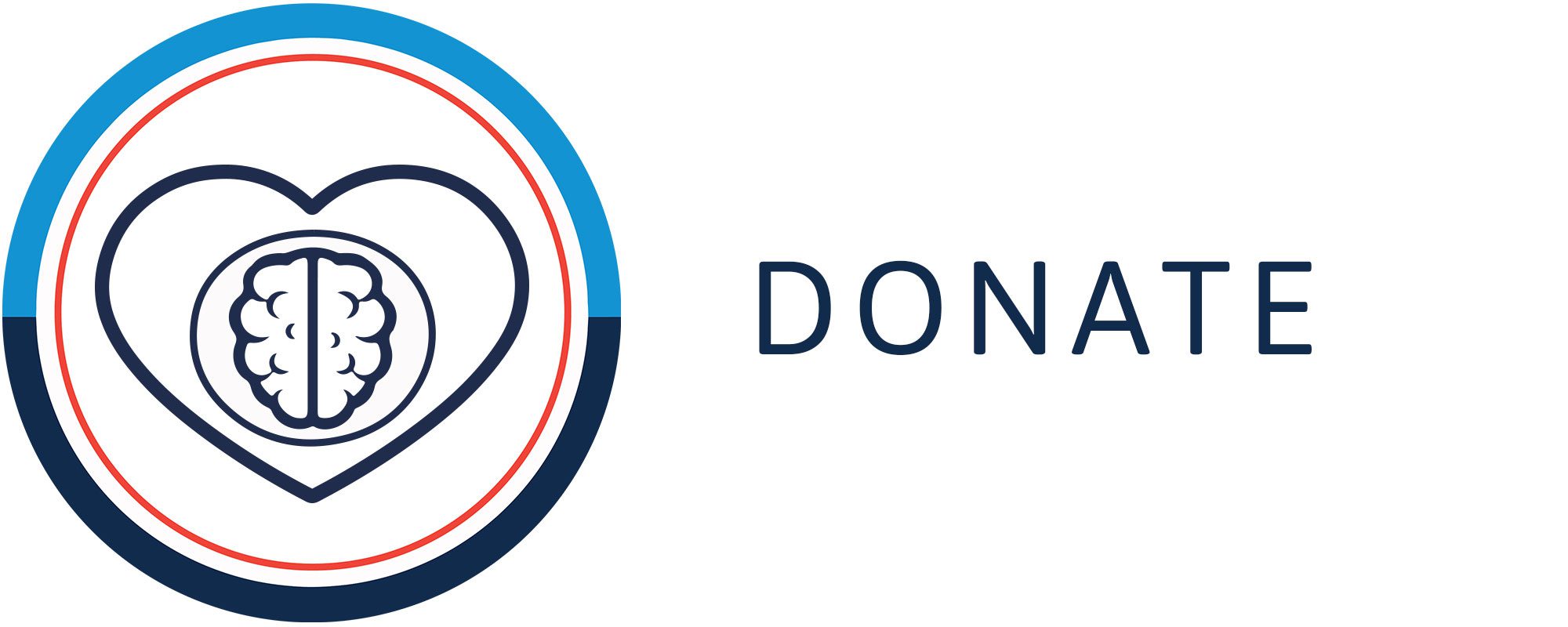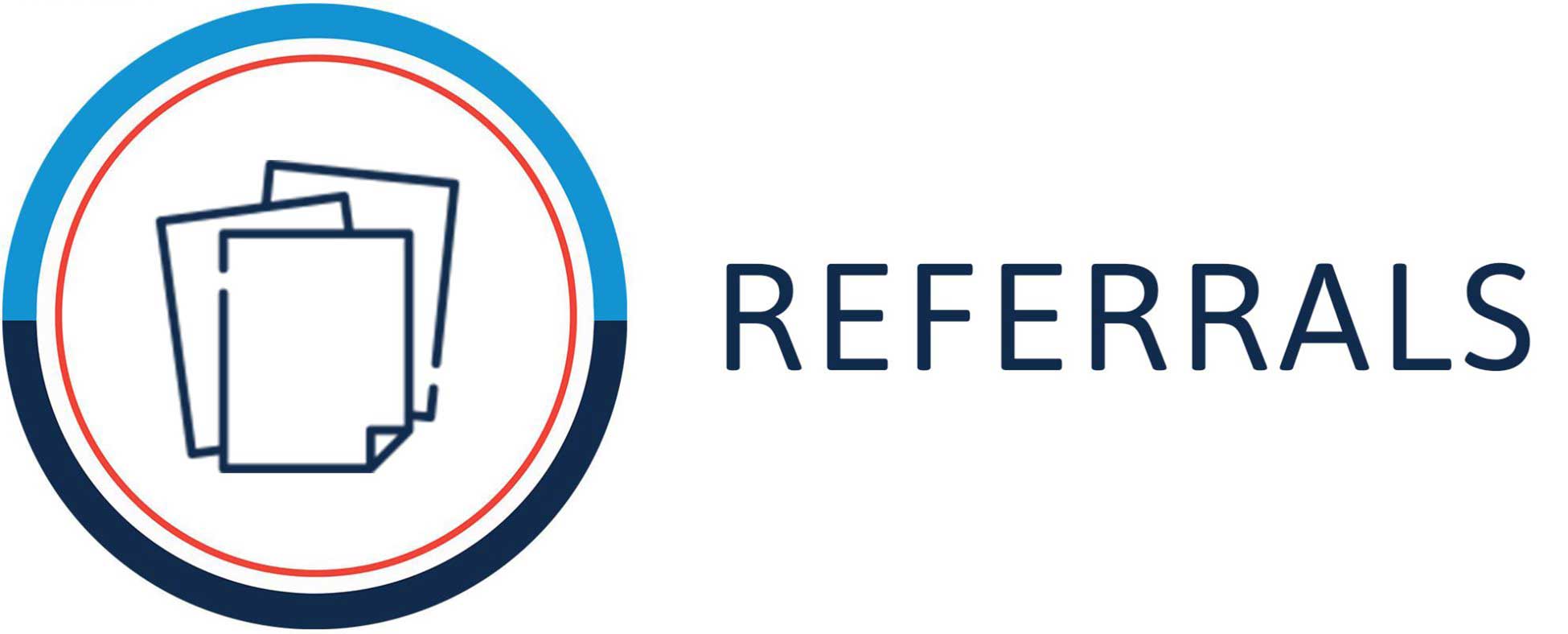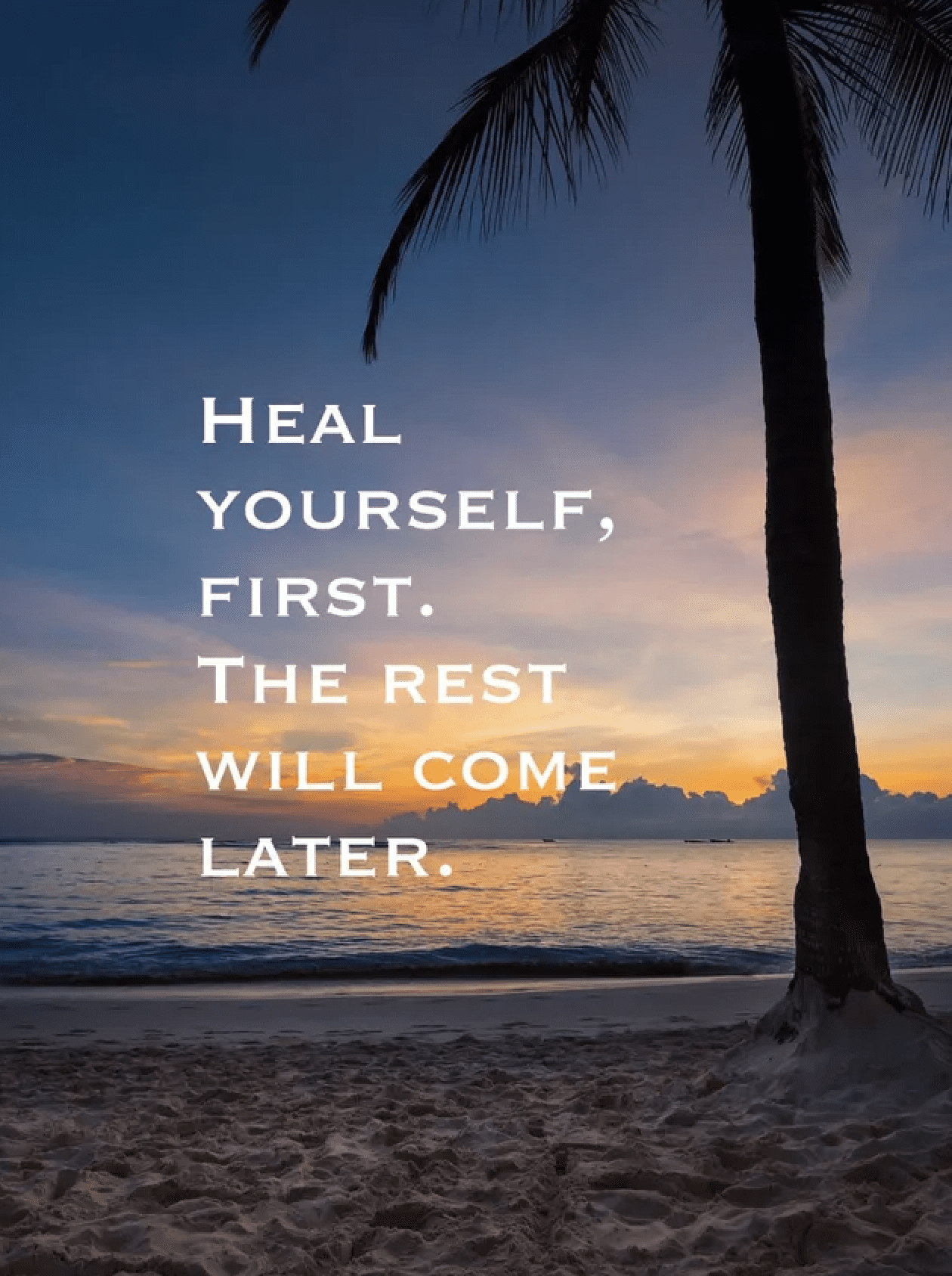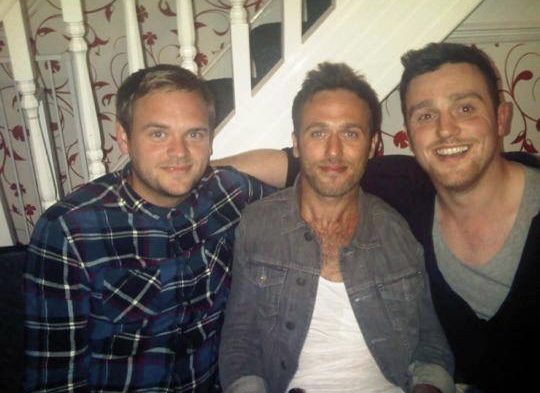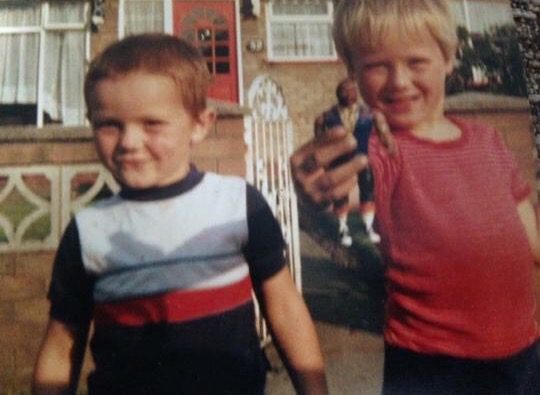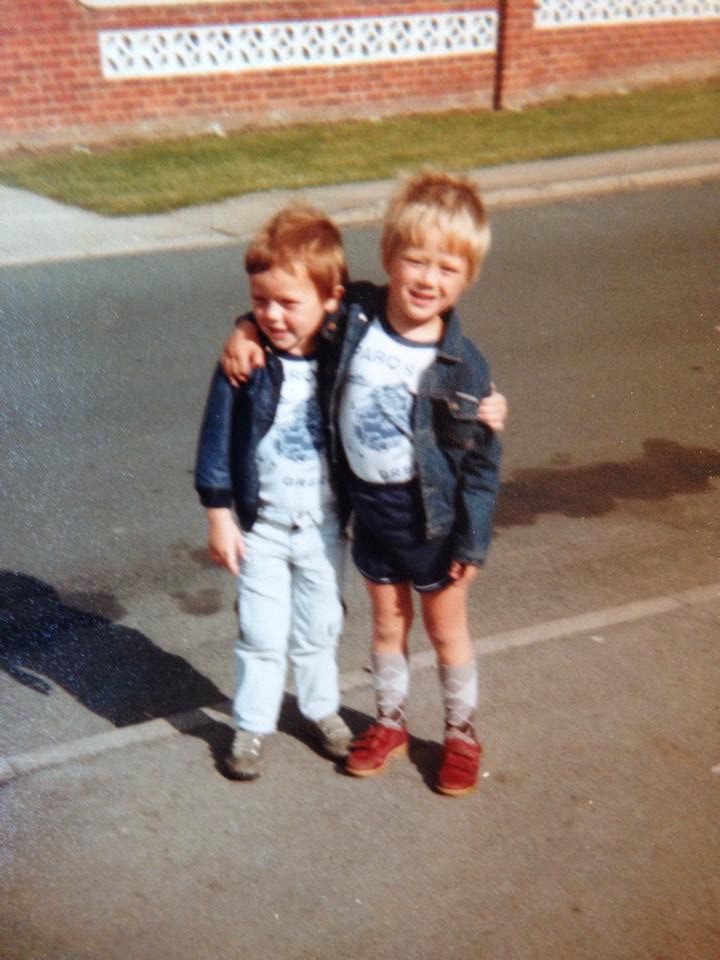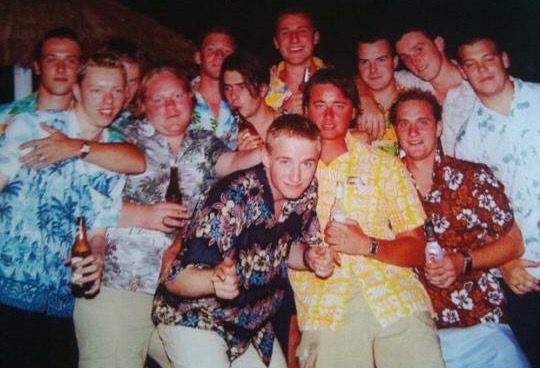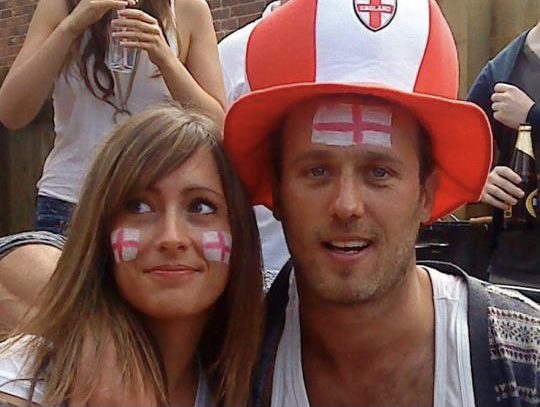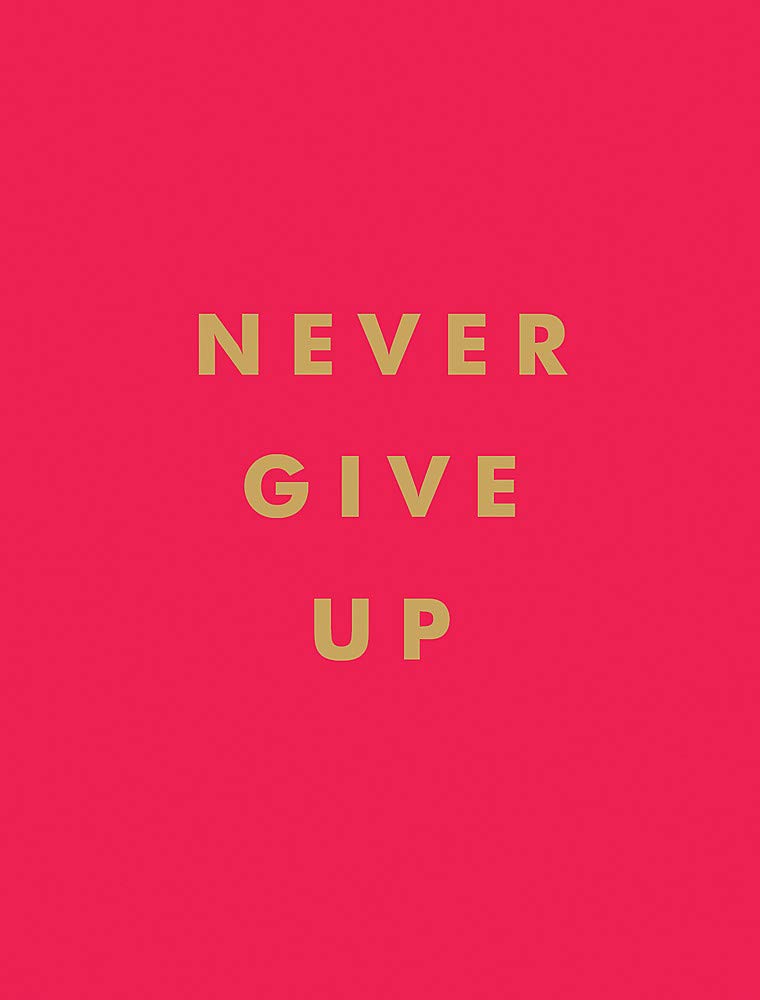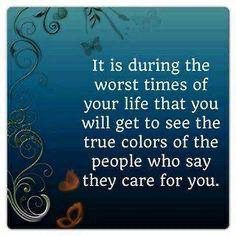Home and Rehab
June 1, 2012
Some of my daily challenges:
- I felt extremely tired all of the time. Some days I wasn’t even doing much. Extreme tiredness after brain injury is known as neuro fatigue. It’s something that I had never felt before and it was debilitating.
- Simple things like making a cup of tea seemed like a big effort. General thinking was difficult and tiring.
- I often thought of nothing, literally nothing. This would have been hard work before brain injury, but I regularly sat and did just that. No thoughts, I was completely blank. I can relate to the people you see staring into space, that was me.
- I had minimal concentration and attention span which meant that nothing really stimulated me. Even my interests that I had before brain injury didn’t mean anything to me. I tried activities that I had enjoyed but I felt blank. This would lead to frustration. Unfortunately, feeling frustrated is common in brain recovery.
- I didn’t have the same emotional connection to anyone. It was like my emotions had been dimmed down.
- My short and long-term memory are both very poor.
- I was easily confused and struggled to process information or complex conversations.
- My behaviour was different due to all the above. This affected my personality and the way I interacted with people.
June 1, 2012
I needed lots of care and support due to the severity of my injuries. I don’t know where I would have been without my loved ones. Their love kept me going through the hardest days of my life!
June 1, 2012
I have an amazing son called Reece who was 13 at the time. As a son I could not ask for any more. He makes me proud every day. I found things extremely difficult in front of Reece. We couldn’t do normal recreational activities or even chat like we had used to. I found it tough when I was dithering around in front of him, looking confused and repeating myself. I had to rely on others to pick him up and I could not afford his maintenance.
I wasn’t able to walk to the local shop with him during these early days of recovery. Not being able to support my son was destroying my fragile mind even more.
Earlier, I mentioned that I could no longer see the visual memories of my life. Not being able to visualise Reece being born was tough. This is something that no father should ever have to go through! I didn’t know if I would ever be able to visualise that memory again.
June 1, 2012
During the early days of my recovery it must have been really difficult for everyone to see the effects of the brain injury – confused, vacant, vulnerable etc. The brain injury caused a ripple. I was at the centre and it was going out affecting everybody and everything in my life in such a negative way. Life became really difficult for my partner, Gemma, who saw the effects daily. The man that she had fallen in love with, was gone. My personality, strengths, humour, affection etc. were all different. I was fragile, confused, vulnerable, slow, agitated and with little understanding of her thoughts and feelings.
I could barely look after myself, never mind see to Gemma’s wants and needs.
June 2, 2012
My life was crumbling around me but there was no thought or understanding to anything. I often felt helpless as I was incapable of thinking my way out of the struggle. One punch had taken my independence, income, relationships, my mental abilities and memories. My life had been blown to pieces on every level you can imagine.
June 2, 2012
Relationships with loved ones were affected massively. It was a really sad consequence of the injury. I spent my days in a complete world of my own. I was functioning with limited thoughts and feelings. I was more like a robot. Nothing can prepare you or your loved ones for life after brain injury.
P.A.U.L For Brain Recovery provides support, guidance and education for individuals, families and loved ones. I encourage you to contact the team if you are struggling after brain injury. Here is a link to the Service Provision booklet:
June 2, 2012
During early recovery, I could not find the words to help people understand how I was feeling. I did not understand it myself. How could I? I was living with brain damage and generally you rely on your brain to understand and come to terms with illness or injury. Trying to make sense of a damaged brain is incredibly challenging. I would describe it as tormenting and cruel amongst other things. Your whole life is turned upside down. Not only have you lost essential abilities but throw in fatigue, anxiety, vulnerability and life becomes a real struggle. Everything that you knew and the way you felt can change.
I had lived with the same brain for 32 years. That brain was me and everything about me. EVERYTHING! All of the information from my life. The way that I moved, my feelings, thoughts, interests, ambitions, fears, memories, confidence, my whole identity. Imagine that your brain is a jigsaw puzzle of 1000 pieces. Each piece is a part that you have built up over your entire life and this makes the picture of you and all that you are. In the early days the puzzle was in pieces and some were turned upside down to be blank. Some pieces were damaged beyond repair.
After my brain injury the picture was not there anymore – it was gone but every day I was still searching, hoping to find the pieces and see my life as I knew it. Brain injury recovery can be cruel.
June 3, 2012
I was smoking 20 cigarettes with around 20 cups of coffee a day. I spent my days pacing up and down the living room and kitchen. This became a habit. I didn’t put any thought into these actions. It was what I was reduced to.
I didn’t realise but my heavy smoking and excess coffee drinking were not helping my recovery! My neuropsychologist advised me to cut down and stop smoking if I could. I was also advised not to drink alcohol during recovery.
June 3, 2012
I felt tired every day. This meant that I could become irritated and frustrated and this presented in poor behaviour.
If you are caring for someone with a brain injury and they are snapping, angry and easily irritated then try not to take it personally. The chances are it’s not you but the brain injury and the ordeal of recovery. As a carer you will need to have patience throughout the recovery journey. You may also need support from professionals such as the Carers Association or P.A.U.L For Brain Recovery.
P.A.U.L For Brain Recovery has worked in partnership with the Department of Psychological Services, Hull University Teaching Hospitals NHS Trust to produce a Behaviour After ABI and How to Help booklet.
June 3, 2012
I have these ailments: feeling blank, poor vision, tinnitus, confusion, poor memory, speech impediment, slow processing, no tolerance for loud noises, cognitive impairments and emotional changes.
P.A.U.L For Brain Recovery has a Common Effects of Brain Injury booklet which covers some of the above and more. You can find it here:
Common Effects of Brain Injury
June 3, 2012
I couldn’t tip my head back as I would go really dizzy and my legs would turn to jelly. This had been happening since the injury. My consultant thought it was swelling and that it would settle down eventually. I occasionally had a massive buzz on the left side of my head and the room would turn upside down. This was very strange and scary to be honest.
I was seeing Selen Osman (neuropsychologist) every 2 weeks for rehabilitation. This involved undergoing tests to determine which areas I was struggling with the most. This rehabilitation was really important to me.
A really hard aspect of having a brain injury is that your family and friends cannot relate to it. They do not understand what you are going through and how difficult it is. I think it’s really important that people affected can speak to someone who understands what they are going through. I found it really positive. Selen had a level of understanding and offered valuable support with tips and advice on how to cope with my challenges and recovery.
I think it’s equally important for family and loved ones to access support and gain knowledge about caring for someone with a brain injury. A brain injury can have a huge impact on those closest to you. The more knowledge that everyone has about brain injury recovery the better.
Although I was functioning at a basic level I could sense the heartache from the ordeal and how it had left me. So much had changed, and things looked bleak. I didn’t know what the future held for me. I was at home; a shadow of the man I was. I spent my days lost and confused. I would sit and look out of the window, not being able to go out alone, not even to the local shop 200 metres away.
The injury had taken my confidence and I don’t mean ‘swagger’. I’m talking about very basic tasks that I once took for granted like walking out of the front door, socialising and going about daily business. The injury had robbed my unique understanding of the world. When this happens, you lose your strength of mind. The world is a scary place when you’re living with a brain injury.
June 4, 2012
Life is lived at such a fast pace. When you have a brain injury it’s like you’re in slow motion and can’t keep up with the world. This can leave you feeling like a burden.
June 4, 2012
I would recommend not spending as much time on social media during early recovery. I found that seeing others enjoying themselves and going about their normal day to day life could have a negative effect on me. It made me feel like I was missing out, which had a negative effect on my mood and outlook. This was not good for recovery.
To anyone with a brain injury – try not to waste your time and low resources on insignificant worries. Try not to be too proud to ask for help. Try not to focus on your weaknesses but on the things that you can do. Don’t be too hard on yourself.
Have patience. Invest in your health. Things can get better.
June 4, 2012
I was shown a video of a festival called Tomorrowland a week before the incident. After brain injury my memory was really poor but for some reason I remembered the video. I used to watch it all the time during my early recovery. It was the only thing on TV that would hold my attention. The music and power of the human spirit had a positive influence on me which was unusual as I didn’t feel much for anything at the time. The video was like therapy during my darkest days –
Tomorrowland
June 4, 2012
The support I received from family and loved ones was crucial in getting me through (what felt like) hell. The visits for coffee and taking me out were so important for my wellbeing and recovery. Just being with them, sitting in silence was a treat. Their presence made me feel safe and loved. They made my soul smile.
Although socialising was important there were a few areas where I struggled. It’s worth noting these if you’re supporting someone with a brain injury:
- Going into public places that were busy made me feel anxious and uncomfortable. The noise of the hustle and bustle and stimuli was far too much for my injured brain to handle. This was due to sensory overload. You can find information on sensory overload here – *Link to common effects booklet
- Too many visitors could feel overwhelming. I struggled to keep up with multiple conversations and pay attention to those around me. This left me feeling isolated. Depending on the individual and stage of recovery I recommend having just 2 or 3 visitors at a time.
- If someone was talking to me but there was other noise in the room (conversations, TV, radio etc.) I couldn’t concentrate and would become agitated. I recommend minimising any background noise when possible.
- I was slow at processing information. If you asked me a question or involved me in a conversation I would need time to answer. If I didn’t have time to respond it could leave me feeling sad and hopeless. It’s important to be aware of this challenge and give your loved one the time they need.
- I would often lose track of what I was saying or not find a word mid-sentence. This could be frustrating and awkward. If I felt pressure to hurry up it would make me feel worse and more unlikely to remember the word or get back on track. I recommend giving your loved one plenty of time, reassurance and understanding.
June 5, 2012
I have a brother called Mark. Today is his birthday. It was great to celebrate with him and the lads.
That’s Mark on the right and my best friend, Jonathon on the left.
June 7, 2012
Mark and I have always been really close. There is only 18 months between us. We have lived our lives alongside each other through everything. We went to the same school, work together and enjoy the same social circles. We have a really strong bond.
I couldn’t mentally visualise memories of Mark and me growing up which was concerning. I spoke to my consultant who said I might not ever get those memories back. This was a massive blow.
I didn’t give up hope though – never!
June 8, 2012
I couldn’t visualise old times with Gemma and friends.
I couldn’t visualise memories with my family.
June 9, 2012
Generally, you don’t think about the importance of memories in everyday life. When I saw my friends I obviously knew who they were, but finer detail was often missing. The experiences we had shared or their wives’/children’s names were not there – I was blank. Because of this, conversation could be minimal. The normal banter was gone. I could feel awkward and stupid but tried hard to make out like I was OK.
Looking back, this was a mistake. I put a lot of unnecessary pressure on myself with unrealistic expectations of myself. I punished myself for not remembering things, which did not help. I should have communicated that I was struggling with a poor memory. If you’re affected by brain injury and feeling the same I recommend that you tell loved ones how you’re feeling.
June 10, 2012
I still felt lost at this point. There were days when I didn’t have a clue what was going on. I spent long spells in a daze. I tried to ignore the confusion and get on the best I could. My inner strength was not going to let this injury beat me. No way!
June 11, 2012
My neuropsychologist advised me to look at photos to try and help retrieve memories. Also, to ask loved ones to talk about old times. I was willing to do anything to try and help.
June 13, 2012
I was really struggling with decision making. A simple question could seem like the million-dollar question! Such hard work. Basic things like choosing which t-shirt to wear could send me into meltdown. Before the injury these types of decisions were not an issue but now they’re a big deal and it can make me feel agitated and upset.
June 16, 2012
If you are struggling to relax then this recording may help. I used to listen to it twice a day. It helped me in the early days –
June 17, 2012
In my early recovery I found it hard to express myself and tell everyone how I was feeling. Looking back, it was because of a mixture of not being able to find the words to explain it (I don’t even think I knew myself how I felt) and not wanting to look any weaker than I already looked. I was getting on with it, trying to mask my pain and looking back it didn’t do me any good. In fact, sometimes, I think it made things worse. I was bottling things up and the pain could surface in the wrong way (agitation, moodiness) and was misinterpreted.
June 18, 2012
Today was a sad day. I posted my driving licence back to the DVLA. Although I knew that I couldn’t drive it was really difficult sealing that envelope and posting it. I didn’t have a clue when it would come back. All I did know is that it was another massive blow to my life.
June 22, 2012
I was living day to day with not much thought into anything. For a long time, I felt like I had been placed in limbo – I was nowhere. I had minimal thoughts for my past, no vision for the future and was just getting through my present with minimal thought. That feeling is frightening and lonely. I didn’t even know if I would get better. I just tried to make the most of each day and be as positive as I could with hope that things would get better.
June 24, 2012
My neuropsychologist was educating me on frontal lobe damage. I wasn’t able to process or understand all the information, but it was comforting to hear that my challenges were common.
June 26, 2012
My mum was also educating me on dealing with a brain injury. She had recovered from a dual blood clot on the brain in 2008. Although it was a different injury some of the effects were similar to mine. She understood what I was going through and provided much-needed advice. She had done so well in her recovery and was the perfect role model. My mum is an amazing woman, very loving and supportive. She was a rock during these early stages of recovery.
June 27, 2012
The police had been in touch and told my family that they had the person who had done this to me (from the Hull Daily Mail appeal). He hadn’t just put his hands up to what he had done though. Instead he had declared ‘it was self-defence’! The police said they were prosecuting on my behalf and that we would be updated on the investigation. There was a likelihood that we would go to court. This is not something I needed during this difficult time!
June 29, 2012
Looking back my relationship with Gemma was impacted negatively. I was unable to function properly which meant it had a massive effect on Gemma. The injury had robbed the connection between us. I acted differently: confused, repeating myself and staring into space. This meant that conversation could be minimal. General daily living, social life and activities ceased to exist.
June 30, 2012
If you know someone who is caring for their loved one after a brain injury be mindful to offer help and support. The strain they may be under could be huge. I think that unintentionally people tend to focus on the person with the injury and forget about the carer.
July 1, 2012
Although I had reduced capacity I knew that my relationship was taking a hit. As a proud man, the feeling of having to rely on Gemma for everything was a daily stamp on my pride. I felt helpless with not being able to make things better. It was like torture.
If anyone is reading this and struggling in the same way, then hold on and don’t give up hope! Things can get better and you will be able to play some sort of role again as I have done. It’s just a matter of time. Try not to let it torment you. Talking to someone from P.A.U.L For Brain Recovery may help.
July 2, 2012
Here is a link I found that will give you an idea of the effects a brain injury has on relationships –
Brain Injuries and Relationships
July 4, 2012
Relationships with family and friends may also change. Generally, relationships work 50/50 but when you have a brain injury you obviously haven’t got 50% to put in. During early recovery you haven’t even got 5% to contribute. The strength of your relationships counts whilst you’re going through brain injury recovery.
July 5, 2012
I felt their love! It carried me through my darkest days.
July 6, 2012
Although I was reliant on my loved ones my recovery was down to me. Brain injury is a very personal battle. I tried to remain positive and have courage. I had faith that one day the storm would pass.
July 7, 2012
I went to the local shop on my own – yessssss! This was a massive boost. I had been plenty of times for walks with friends but going alone was a big step in my recovery. It was the beginning of going back into the world as an independent man.
July 11, 2012
The only thing with going to the shop alone is that 9 times out of 10 I forgot what I went for! This could be embarrassing and frustrating. It didn’t help my morale. I found it best to write a list. Try not to forget your list. I did that a few times as well.
July 12, 2012
During my early recovery I went to Asda with my stepdad, Pete. It was summer, so I thought I would grab some suntan lotion. I went to choose it alone and was quite pleased with myself for doing so. A couple of days after using it I noticed I had brown stains on the palms of my hands. I didn’t have a clue what it was but for some reason I thought it was a side effect of my brain injury. I spent an afternoon googling ‘brown hands developed through brain injury’ and ‘brain recovery gives brown hands’. Obviously I didn’t find anything! I asked Gemma when she got home from work. She said it looks like fake tan to me and went to find the bottle which led to a big belly laugh. I’d bought the wrong lotion and had been lathering myself with fake tan. I got some stick!
July 13, 2012
I had a visit from my friend Claire who really inspired me. Claire passed on some knowledge about recovering from a brain injury. In 2011 she had a massive operation to remove a brain tumour and the day after that she had a second operation to remove a blood clot. The operations were a success, but it left her with challenges. One of which was a right-hand side weakness which meant she couldn’t walk or use her right arm. She had to learn to do this again. Claire fought through her recovery with dignity and pride. She had managed to return to work. She had to wear a leg splint for her weakness, but she just gets on with it.
One thing that I really noticed was her positive attitude. She didn’t take the injury seriously and was able to laugh at herself. This was really inspiring as I struggled to do the same. She’s tough as nails and her strength was a real boost at a hard time for me.
July 14, 2012
I was venturing out alone which was great, but I would find myself forgetting things like locking the door, turning things off etc. Also forgetting my wallet etc. I found that making a check list of the common things I needed to remember was really useful.
July 18, 2012
I had been having speech therapy sessions at home. These sessions really helped with my stutter. I was delighted when he signed me off. This was the first thing that I had recovered from, so it felt amazing. It showed there was potential to get better!
July 19, 2012
I was starting to go out alone to the local shop more often and really enjoying the independence. One day I ventured a little further to a busy local street, Newland Avenue. Looking back, I pushed it too early as I got a bit anxious when I got there. When you are slow and easily confused the world can be a scary place. I made it home safe, but it made me realise that I needed to pace myself.
July 21, 2012
It was three and a half months into recovery when I felt a bit of mind and energy come back! It wasn’t a great amount, but I was aware of something and this made me feel better. I wanted to use this energy wisely. I had wasted away physically due to lack of activity and decided to do a little workout in my living room. It was only 3 press ups, 3 sit ups and 3 squats. It was such a small workout, but this was all I could manage at the time. Everyone has to start somewhere, and I really enjoyed being able to do it.
After being lost and confused for months a focus and routine was magic!
July 22, 2012
I would describe the ‘feeling better’ as like – just waking up from a deep sleep. That first moment when you open your eyes and you’re not awake properly. It felt like the first three and a half months I had been in a trance, sleep state, operating at such a basic level. It was like the lights had been on, but no one was home.
This new awakening was a huge milestone during my recovery.
July 23, 2012
I had developed some insight into my injury which was positive, but it came with consequences. I started realising how bad I was, which could be upsetting. For example, I unknowingly stared into space for periods of time then one day, I realised that I was standing staring at the kitchen wall and thought it was strange! I had been doing this for months. I also started to notice that I was repeating words and getting confused.
July 24, 2012
My advice to anyone affected by brain injury is to try and be happy with your progress during recovery. Some days you doubt whether you will get any better because recovery is slow, but things can and do get better over time. Try not to become too focused on being the ‘old you’ and don’t ignore the milestones you’re making. Go easy on yourself with plenty of self-care and positive words of encouragement. You’re doing great!
July 24, 2012
I was enjoying my freedom and was going to the local shop every day. My confidence was building in being out alone and I was ready to go further. I wanted to go to Hull city centre on the bus alone! This was a big step for me. I had been to town thousands of times in the past, but this was different, I wasn’t sure if I would be OK.
July 25, 2012
I spoke with my family about going to town. We all agreed that I should attempt the trip. We discussed some strategies I could use if anything went wrong (best to be safe). I headed off and felt proud sitting on the bus. When I got off the bus I forgot why I had gone and what I was doing. It would have been easy to panic but I didn’t. I stood out of the way for a few minutes to get my head together. I looked at some notes I had prepared and composed myself. I wandered around the city, enjoying the freedom. I went to a quiet cafe and had a coffee (decaf). This was such a big deal to me; I can’t tell you how much this meant. I was rebuilding my confidence. I went into Topman to see if I could buy some clothes. I thought it would make the trip even more of a success. I didn’t think about my challenges with making decisions!
I paced up and down the shop for an hour, I’m surprised they didn’t call security. I found a nice t-shirt and a pair of trousers, but I just couldn’t decide on the colour. In the end I bought the same t-shirt in 6 different colours and the same trousers in 4 colours, lol. This brain injury wasn’t beating me! I walked out feeling happy with my new clobber.
I told Gemma about my new clothes and she asked to show her. She was laughing at most of it, especially my green trousers and t-shirt, calling me ‘Paul the pea’. She said ‘you’ll never wear these’ and took most of it back. At least I had tried!
I was enjoying my small home workouts. Gemma bought me Men’s Health magazine to help with ideas on fitness and health.
July 27, 2012
I was returning home from the gym, drinking a bottle of water. Tilting my head right back made me really dizzy and I started to stagger. This was a persisting ailment since the injury, but I had just got on with it by not tilting my head back. I had forgotten on this occasion and it really worried me, especially as it happened whilst I was out in public alone.
I went to the doctors the next day and they sent me to Hull Royal Infirmary. They were concerned it was still happening. I was admitted back onto Neuro ward 4/40. They thought that it might be a trapped vain in my neck that had moved off course with the impact of the fall and was cutting off the blood to my brain. They also wanted to do an MRI to see if there was further nerve damage.
This was a nightmare to be honest. I felt like I was finally getting somewhere and there I was back in hospital having x-rays and CT scans. I had to stay in for a few days whilst they did tests and then had to attend ENT at Castle Hill hospital where I was to undergo tests on balance and movement. After a week or so I was diagnosed with traumatic labyrinthitis. I learnt that the impact of my head hitting the floor had aggravated my inner ear canal system which affects balance and causes vertigo. This problem goes in time but there is no quick fix, just when it heals I was told. This was another blow!
I started to feel depressed.

